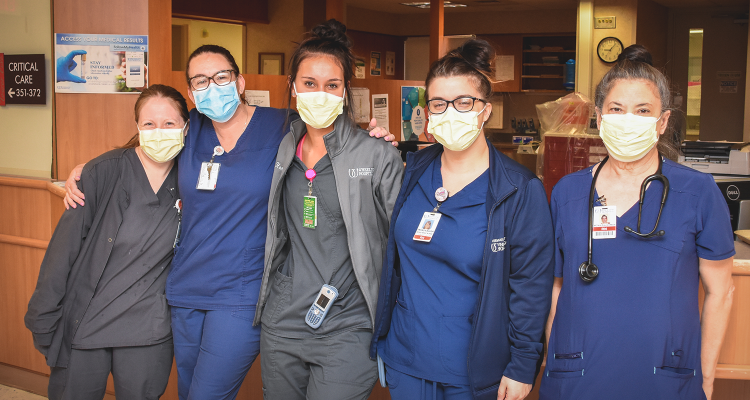Editor’s note: Look for Weelunk’s Q&A stories with several Ohio Valley nurses in the coming days in honor of National Nurses Week, May 6-12.
Every year, National Nurses Week starts on May 6 and ends six days later — on Florence Nightingale’s birthday, May 12. Nightingale is the name behind the “Florence Nightingale Effect,” and she earned the nickname “Lady with the Lamp” while making the rounds by lamplight to see her patients at night.
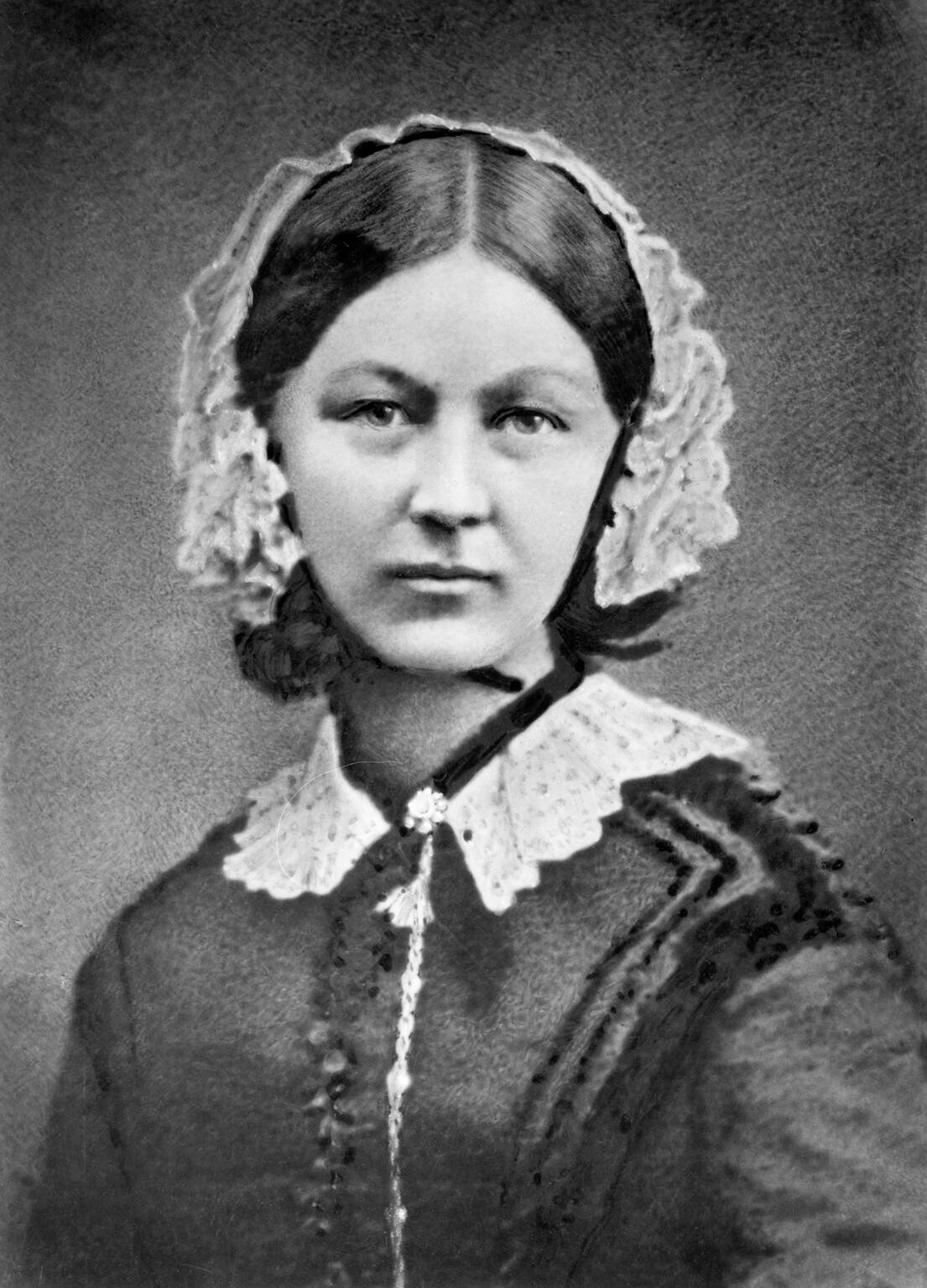
Nightingale is considered the founder of modern nursing and, with her 200th birthday this year, the World Health Organization has proclaimed 2020 the “Year of the Nurse.” Her improvements in hospital sanitation during the Crimean War of 1853-56 saved many lives, and her teachings were very influential on modern nursing.
Setting aside a day to honor nurses goes as far back as the 1950s, but it wasn’t until 1994 that the American Nurses Association officially declared May 6-12 — specifically centered around Nightingale’s birthday — as the annual celebration week, or Nurses Appreciation Week.
Nurses should be appreciated every day, but this year, the special week carries extra significance. Our nurses are putting everything on the line to take care of us while the first major pandemic of our lives is happening.
ON THE FRONT LINE AT WHEELING HOSPITAL
2020 is Wheeling Hospital’s 170th anniversary, but any plans for celebrations have been put on hold while nurses and staff focus their attention on how to properly treat COVID-19 patients. West Virginia COVID-19 cases arrived slightly behind more heavily populated states, which gave those at Wheeling Hospital time to plan just how they would handle the pandemic.
Leigh Scherich is the clinical director of nursing at Wheeling Hospital and has 40 years of nursing experience. “We have two units that we have had to create,” Scherich explained. “There is a unit called the Pandemic Unit, and a unit called the COVID Unit. The COVID Unit is more for the ICU patients — the patients who are on ventilators.”
When Tower 5 was built at the hospital, it freed up space that can be used for the pandemic — the old ICU is now being used for virus patients. Wheeling Hospital has nurses who have been trained specifically to work with COVID patients. “You have to have a mindful skill set on how you put on your protective wear and take it off. You have to do it just right.”
The nurses are busy with COVID-19 cases, but so far have everything under control. “Our area is less stressed, obviously, than what we see in New York,” Scherich said. “We do have our fair share of cases, but it’s not to that extreme.”
She feels confident that Wheeling Hospital has put the correct measures in place to be ready for whatever is coming their way with the pandemic. “The bottom line is we are here to take care of patients. We take care of all kinds of patients.” Scherich predicts that nursing schools will start teaching things a little differently because of the virus, and nurses will be more prepared overall for pandemics in the future. Wheeling Hospital is ready should they get a surge of patients in the coming weeks or months. “We have a Plan A and a Plan B. We have worked with WVU Medicine and have followed their lead as well, but we know where we will put an influx of patients.”
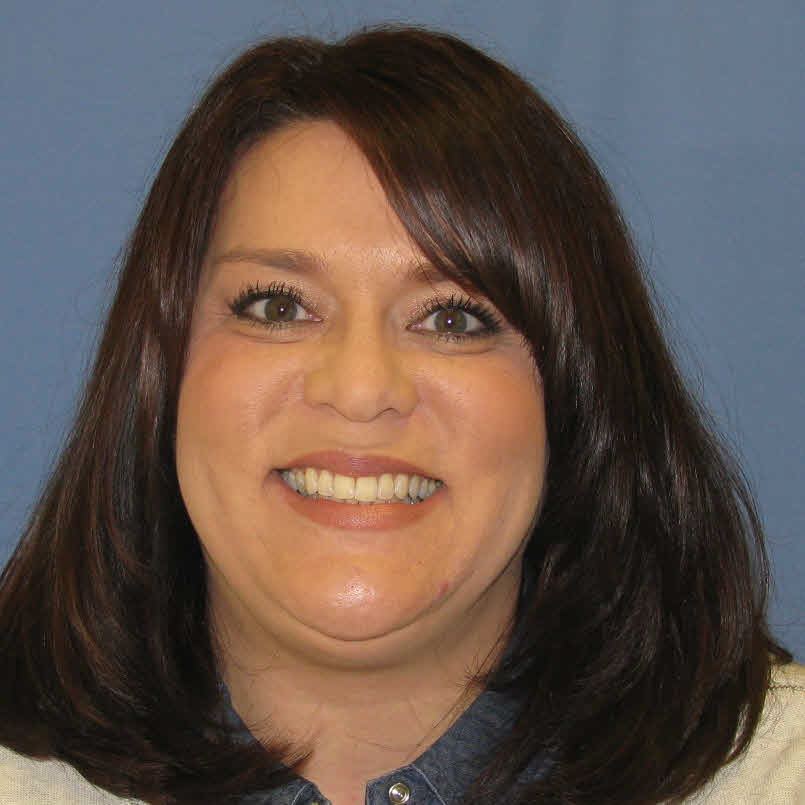
Shannon Saunders, a graduate of West Virginia Northern Community College, is one of the nurses on the frontline of the pandemic who goes to work every day to help COVID-19 patients. And every day she puts on the proper attire the Center for Disease Control recommends in PPE (personal protective equipment). “The gowns, masks, face shields, gloves, all that stuff — it’s very hot,” Saunders says. “It’s really hot to have all that stuff on when you’re trying to care for people, but it’s a necessary precaution.”
When asked if she is concerned about contracting the virus or bringing it home to her family, she explains that her time in the COVID Unit is “just another day on the job for us. I mean, there is always something that you are worried about, so you just take the extra precautions. Wash your hands, wear everything you need to wear, just practice good patient care all day here.”
Saunders does not feel overwhelmed working in the unit because she says Wheeling Hospital has established a good plan for the pandemic, and everyone is following procedure. “You never know what’s going to happen, but we have all the PPE we need,” which has been a problem for hospitals in larger cities. The precautions Saunders personally takes to stay healthy is to shower and change after her 12-hour shift before spending time with her family. And, like most of us, she is not visiting with her parents and is staying away from anyone with a compromised immune system.
LIFE GOES ON
While the virus has changed our daily life as we know it, some things remain the same at the hospital. “Fortunately, maternity is one area that has not slowed down,” said Cara Gazdik, director of Women and Children’s Services. Gazdik oversees labor and delivery, maternity, nurseries and pediatrics.
For anyone who is expecting a baby, Gazdik believes the No. 1 change the virus has brought to labor and delivery is that only one support person is allowed in the delivery room with the mother, and that person has to have their temperature taken upon entering the hospital. The support person is also urged not to leave the hospital once they arrive to keep from potentially spreading germs.
“We’re using iPads, iPhones, Facetime — whatever we need — to show the new baby to grandparents. Before we might have had a waiting room full of grandparents waiting on the new baby, but now it’s pretty empty, and that’s just for the safety of the families,” said Gazdik.
Labor and delivery nurses are taking precautions to stay healthy and safe as well. Labor and delivery sometimes resembles an emergency room at times because nurses are never sure what will be coming through the door. The nurses need to approach every patient with caution and treat her as if she is infected with the virus until it can be ruled out. Nurses have to take care of themselves as well so they can be there for the next mother and newborn.
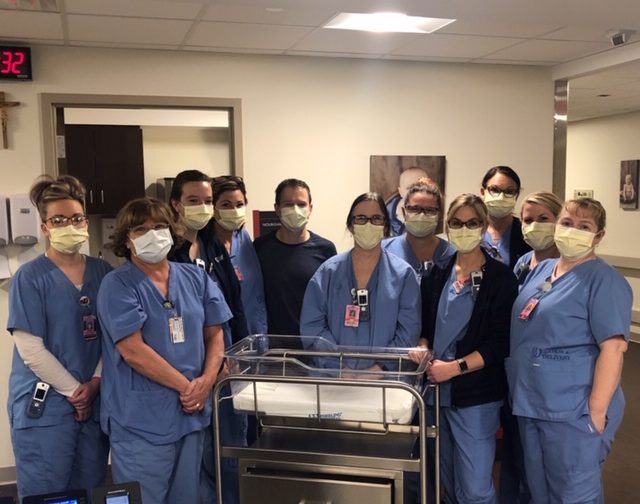
Gazdik urges any expectant mothers to have online baby showers rather than gathering in person with a group. “The showers might be something that will need to be postponed because we really want a healthy mother. We do know how to take care of a mother who has COVID disease, and we do know how to take care of a baby who has been exposed to a mother with COVID, but we really want a healthy mom, so the social distancing and keeping healthy is important.” There is a risk for infants to contract the virus, but the risk is lower when it comes from contacting it through the mother, as long as the mother uses the proper precautions. The virus is not believed to be transmitted through breast milk — a baby is more likely to contract the disease if someone is coughing nearby.
Of course, the first thing proud new parents want to do is show off their baby, but Gazdik warns that virtual visiting is the way to go right now. “Babies can get COVID, so just like you and I, they should be kept socially isolated from other visitors. So as far as grandparents, aunts and uncles visiting, that should not happen.”
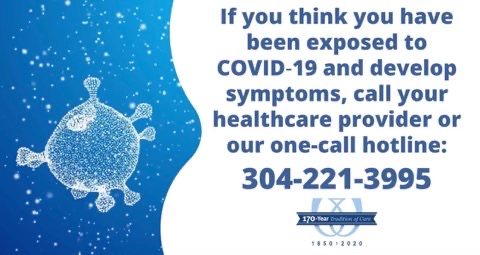
GETTING TESTED
Gazdik’s many duties now include running the tent at Wheeling Park that has been set up for testing. Around 2,000 people have been tested in the past six weeks. The tent is located by the skating rink at Wheeling Park, and those who want to be tested need to call the hotline number first to be registered. The test is a drive-thru throat swab that takes less than five minutes. Gazdik hesitates to estimate when the test results will be ready because the tent is at the mercy of the state. There have been times when Gazdik and her team thought they were getting a shipment of tests only to be told the tests had to be sent to New York or somewhere else that needed them faster than West Virginia.

When asked how many positive test results she is seeing, Gazdik says it is a lot. “In my almost 30 years of nursing, I have never seen anything like this that has affected the whole world. I’ve gone through SARS and Ebola and things like that, and we were scared, and we were prepared, but nothing where I knew so many people who actually had the disease.”
While some of us are feeling stressed and frustrated over learning how to work from home while simultaneously homeschooling, or having social events canceled and not being able to see family and friends, we need to take a minute to be grateful for the health care workers who suit up every day for us. There is no shelter in place for nurses. Instead, they are leaving their homes and putting themselves at risk, all for us and our families.
Two hundred years after the founder of modern nursing Florence Nightingale was born, we are facing one of our largest global health crises ever. We owe our nurses everywhere a big thank you and more appreciation than ever for helping us through this pandemic.
2020 truly is a “Year of the Nurse” that will never be forgotten.
Author’s note: Special thank you to Alex Panas, marketing specialist at Wheeling Hospital, for her help with this story. Thank you, Alex, for taking pictures of nurses and getting questions to nurses and staff. I wouldn’t have been able to write this piece without your help.
• Kelly Strautmann lives out in the country of Cameron, West Virginia, and proofreads in the city of Wheeling. She has a supportive and talented husband and two ridiculous daughters who keep her busy and full of love.


